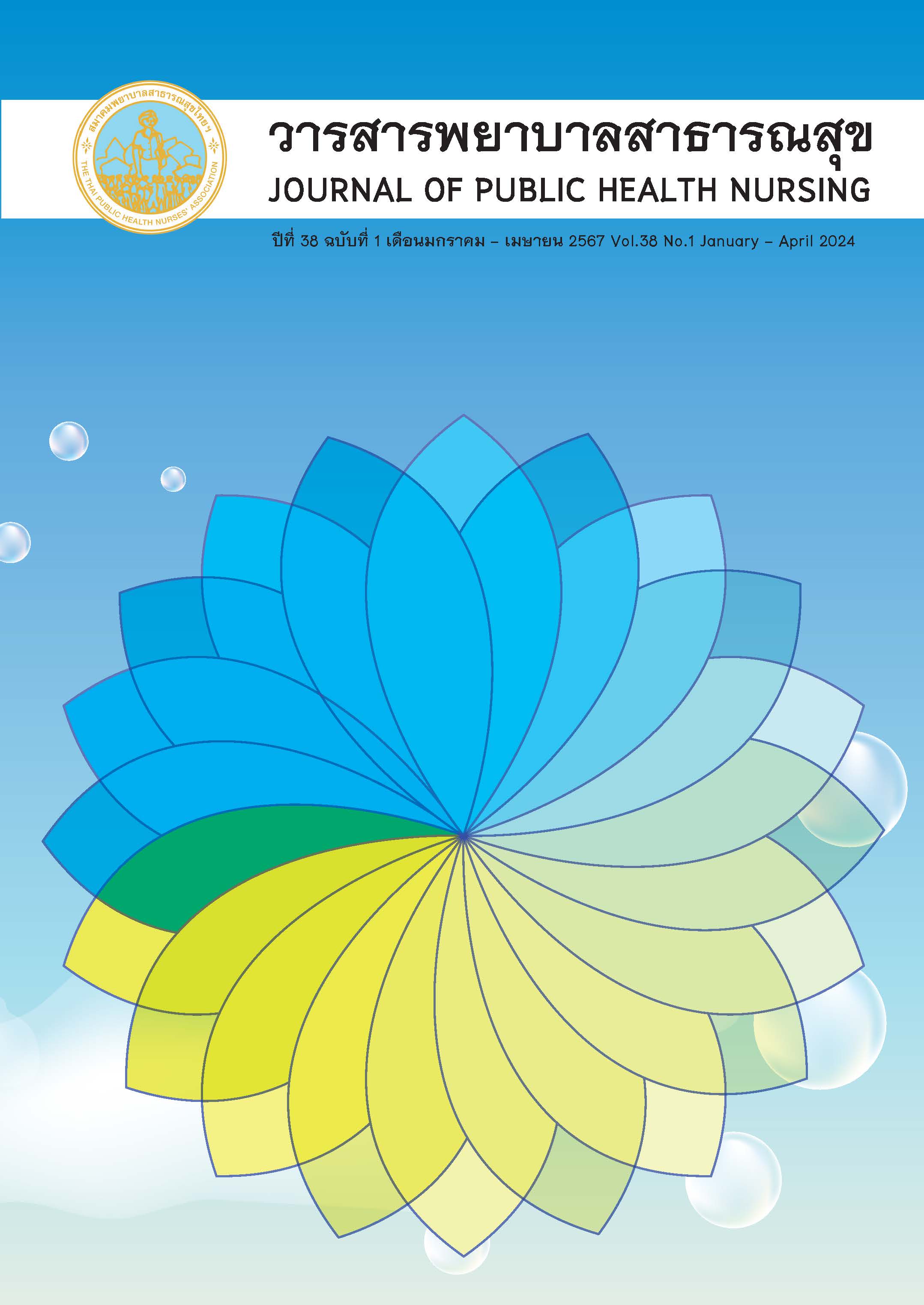Treatment Effects and Adverse Drug Reaction of Metta - Osot Cannabis Oil From Medical Records in End Stage Cancer Patients Received Treatment at a Cannabis Clinic, Thai Traditional and Integrated Medicine Hospital, Bangkok
Keywords:
end stage cancer patients, Metta-osot cannabis oil, the quality of life, adverse drug reaction, cannabis oilAbstract
This study aimed to investigate the therapeutic effects, adverse reactions, and quality of life of patients with end-stage cancer who were treated with Metta-osot cannabis oil. The data was obtained from medical records at a cannabis clinic. The study used retrospective data from medical records. There were 274 people who received Metta-Osot cannabis oil, but only 147 were collected between August 31, 2020 and January 30, 2023, including both males and females aged 20 to 90. We collected data from the quality of life questionnaire (EQ - 5D - 5L, ESAS), as well as from records of adverse drug reactions. All relevant data has been gathered. The researcher performed the coding of the data recording form. We converted the acquired data into numerical values and utilized statistical methods to investigate the impact of treatments on the quality of life. We conducted a statistical study to compare the means of a single sample group with repeated measurements. More precisely, we conducted a statistical analysis by comparing the average quality of life at each subsequent visit to the average quality of life at the initial follow-up visit. This comparison was done using a Paired t-test. Additionally, we also examined the occurrence of adverse drug reactions. The research findings indicated that the use of Metta osot cannabis oil can enhance the overall well-being of patients with terminal cancer. It significantly relieves symptoms related to insomnia, loss of appetite, fatigue, physical or mental distress as well as nausea and vomiting. There was a 9 percent occurrence of adverse reactions. Based on the findings of this study, it will be determined that cannabis-containing medications should only be used for medical purposes and under the supervision of a physician or practitioner of Thai traditional medicine. This study has the potential to enhance the scope of clinical research.
References
Pithukpakorn M. Precision Oncology in Thailand. Illumina Roadshow 2023 event on 17th March 2023, Thailand.
Office of the national economic and social development council [Internet]. Bangkok, editor. Webmaster [cited 2023]. Available from: https://www.nesdc.go.th
Chulalongkorn University [Internet]. Bangkok, Radiation and Oncology editor. Webmaster [cited 2023]. Available from: https://www. chulacancer.net.
National Cancer Institute, Department of Medical Services, Ministry of Public Health. National Cancer Prevention and Control Plan (2013-2017). Bangkok: Agricultural Cooperatives Publishing House of Thailand Company Limited; 2013.
Srivatanakul P, Sriplung H, Deerasamee S. Epidemiology of liver cancer: an overview. Asian Pac J Cancer Prev. 2004; 5:118-25.
Ministry of Public Health, Thailand. Medical cannabis listed in service plan 20. [Internet].2019 [cited 2020 Dec 13]. Available form: http://www.medcannabis.go.th
Department of medical science. Guidance on Cannabis for Medical Use. Eds 3. Nonthaburi: Ministry of Public Health; 2020.
Medical cannabis service plan committee. Guidance on medical cannabis services, integrative clinic; western and Thai traditional medicine in health settings under Permanent secretary office. Nonthaburi: Health Administration Division; 2019.
Department of medical science. Counseling guidance on medical cannabis counseling use. Nonthaburi: Ministry of Public Health; 2020.
Cyr C, Arboleda MF, Aggarwal SK, Balneaves LG, Daeninck P, Néron A, et al. Cannabis in palliative care: current challenges and practical recommendations. Ann Palliat Med. 2018; 7:463-77.
Food and Drug Administration. A manual for the use of the Thai Algorithm in the assessment of adverse drug reactions from use medicine. Bangkok, FDA. 2022.
Waleerat K. Effects and safety of sublingual cannabis oil with 1.7 % THC in late-stage cancer patients get services at a medical marijuana clinic Chao Phraya Abhaibhubejhr Hospital. Journal of the
Arun B. Consensus recommendations on dosing and administration of medical cannabis to treat chronic pain : result of a modifies Delphi process. Journal of Cannabis research. 2021; 3: 22.
Lev Schleider LB . Prospective analysis of safety and efficacy of medical cannabis in large unselected population of patients with cancer .Euro Journal of Intern Med. 2018; 49 :37 – 43.
Anderson R. Behavioral Model of Health Service Use. Journal of Health Society Behavior. 1995; 36(1): 1–10.
Downloads
Published
How to Cite
Issue
Section
License
Copyright (c) 2024 Thai Public Health Nurses Association

This work is licensed under a Creative Commons Attribution-NonCommercial-NoDerivatives 4.0 International License.
บทความที่ตีพิมพ์และแผนภูมิรูปภาพถือเป็นลิขสิทธิ์ของวารสารพยาบาลสาธารณสุข (Thai Public Health Nurses Association)







